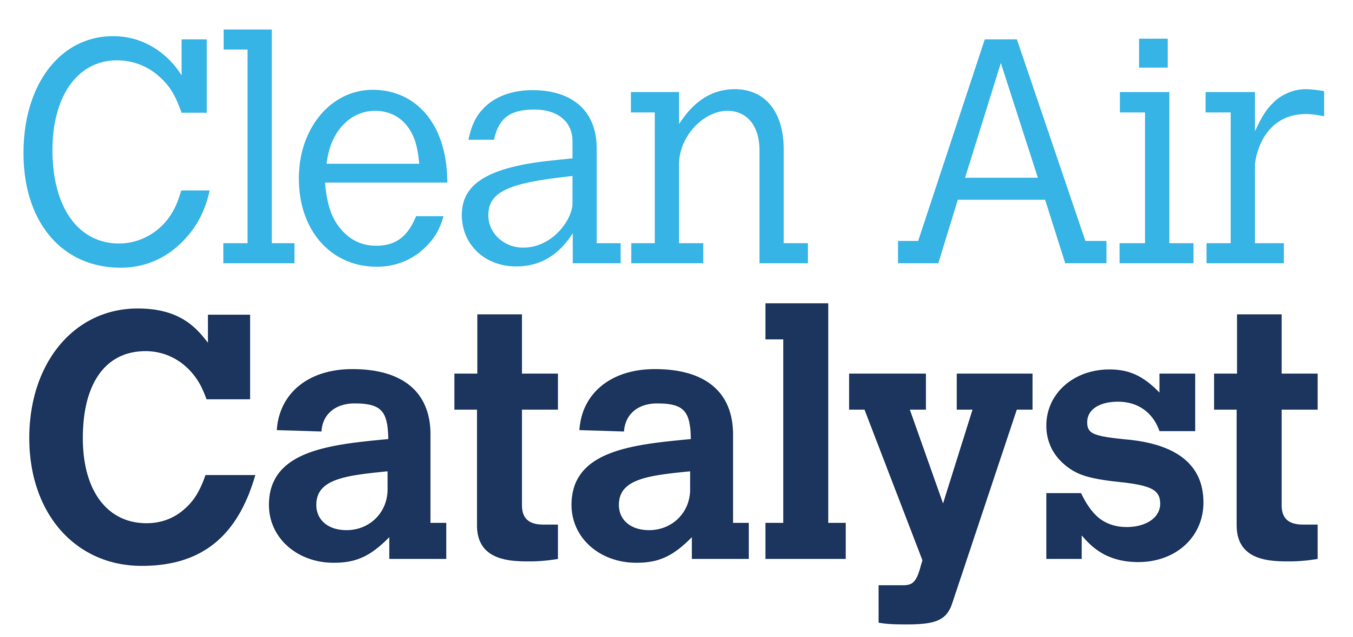Air Quality for Women’s Health
Meet three women fighting to address air pollution and its hidden impacts in Nairobi’s informal settlements
Esther*, a 32-year-old single mother, has been living in an informal settlement in Nairobi, Kenya, since fleeing her home with her two daughters due to domestic violence.
She survives by segregating waste at a local dumpsite, where decomposing organic matter and burning plastics fill the air with toxic pollutants. This exposure impacts the surrounding community’s physical and mental well-being, and many of the women, like Esther, are disproportionately at risk.
The links between air pollution and various health issues like asthma, heart disease, and stroke are well established. Recent studies have also linked air pollution to female reproductive health issues, including endometriosis, miscarriage, infertility, and gynecological cancers. In Nairobi's informal settlements, these health problems are stigmatized, leading to ostracism or assault, and increasing barriers to necessary health care.
Since working at the dumpsite, Esther has noticed extremely heavy and painful menstrual cycles, which force her to miss work and lose essential income, leaving her without money for basic necessities like sanitary pads.
Social norms exacerbate the situation, as women in communities like Esther’s spend an average of 11 hours a day on unpaid care and domestic work, compared to three hours for men. This increases their exposure to indoor air pollution, particularly when cooking with harmful fuels like kerosene or used plastic bottles.
Charting the Course for Clean Air Action
To address the impacts of air pollution, USAID’s Clean Air Catalyst is collaborating with GROOTS-Kenya and other local women-led organizations to expand women’s knowledge about the risks of air pollution and enhance their agency to advocate for clean air in their communities. These women are key partners in developing clean air solutions for Nairobi, championing community interests and amplifying their perspectives at meetings involving air quality practitioners and policymakers.
Clean Air Catalyst and its partners work with women community health promoters (CHPs), which is an initiative of the Nairobi City County, and other women leaders to increase community awareness of how social expectations for women shape exposure and vulnerability to air pollution.
Understanding Impacts of Air Pollution on Women and Children
Abigail*, a CHP in an informal settlement, serves around 100 households as a crucial link between residents and essential health services. She uses the training she received from Clean Air Catalyst to educate other women and girls.
"Air pollution is affecting us as women," Abigail explains. "When we use charcoal stoves, it impacts our reproductive health and makes us asthmatic. In our group of 30 women, at least 20 of us use inhalers, but we share them because we can’t afford our own. Dumpsites around our school cause children to collapse in lessons. Our girls suffer from heavy menstrual periods, and women experience miscarriages due to air pollution."
Women in these communities have also revealed alarming links between air pollution, violence, and harassment. They report enduring violence at the hands of their partners in response to miscarriages and stillbirths, which studies have linked to air pollution exposure.
Dumpsites are a dangerous place for women and girls, and not just because of the pollutants they emit. Esther frequently faces sexual harassment and abuse from male colleagues in her job working in waste management, and her daughters experience similar harassment passing through the dumpsite on their way to school.
Reproductive health issues such as menorrhagia, or excessive or prolonged menstrual bleeding, have also been linked to air pollution. Women and girls experiencing menorrhagia in Nairobi’s informal settlements struggle to afford menstrual hygiene products to manage their heavy periods, and reported that women and girls are forced to engage in transactional sex for sanitary [pads].
Maria*, a community youth champion in Nairobi, explains the real life effect of prolonged menstrual bleeding, which can be exacerbated by air pollution exposure.
“Now, in our community, girls don’t have pads,” she says. “That is the main thing that causes them to go and have boyfriends, who get them pregnant and stop them going to school. Why do they do it? Because they need money. Not only to buy pads, but to cater for all their needs.”
Women as Clean Air Champions
Through Clean Air Catalyst, USAID works with women like Esther, Abigail, and Maria to help them advocate for better air quality and promote action for women’s health. Field surveys of polluting activities, conducted by the Clean Air Catalyst with support from CHPs, identified the main sources of pollution in Nairobi as transport and hospital waste management, and the populations most affected, which include women from low-income settlements.
Before, Abigail knew pollution caused health problems but lacked information on its causes or mitigation. Engagement with the Clean Air Catalyst—including through source awareness training and policy dialogues that highlight how women and children are uniquely impacted by exposure and vulnerability—has better enabled her to advise households on reducing exposure, particularly around cooking fuels.
"We don’t just represent ourselves or our households," Abigail emphasizes. "As a CHP, I have 100 households. Whatever information I’ve been given, I also share with others."
Increased awareness across these communities is a critical component of addressing inequalities and encouraging the behavior change that could improve local air quality and health outcomes, such as discouraging burning plastic bottles as a source of fuel, or trying to limit pregnant women and children’s exposure to pollutants where possible.
Maria adds that Clean Air Catalyst training is vital for young people, including survivors of violence in informal settlements, who often feel unheard: "For us, we also have ideas – both girls and boys. We also want to express ourselves."
Communities must play a leading role in shaping Nairobi’s clean air solutions. Women’s unique perspectives, knowledge, and experiences will drive an inclusive clean air policy agenda for the city.
*Only first names used to protect privacy.

